MEDIA RELEASE
January 2023
Companion Animal Network Australia issues warning to pet adopters about pet rescue scams
AUSTRALIA: 16 Jan 2023: Leading national animal welfare charity Companion Animal Network Australia (Australia CAN) is warning pet adopters about fake pet rescue groups which are breaking hearts and draining bank accounts.
“The majority of pet rescue groups are run ethically by staff and volunteers who are dedicated and work hard to save animal lives,” said Trish Ennis, CEO of Australia CAN, a registered charity representing the companion animal welfare work of member organisations across the country.
“But sadly, there is a rise in scam pet rescue groups targeting people who want to adopt from a shelter or rescue. Scammers are impersonating real animal shelters and rescue groups or posing as people who want to rehome an animal and tricking the public into adopting pets that don’t exist.”
To raise awareness about pet scams, Australia CAN partnered with Puppy Scam Awareness Australia (PSAA), a dedicated organisation that brings awareness about the thousands of pet scamming syndicates who prey on pet shoppers, helps puppy shoppers spot a scammer and assists those who have been scammed. PSAA also works to report and shut down scammers’ online presence and helps victims try and get their money back.
“We are very concerned that pet rescue scams are on the rise,” said PSAA Founder Sandy Trujillo. “Sadly, many pet lovers are getting pulled into these online scams thinking they are legitimate and often take what scammers say at face value. There are hundreds of these pages on social media and the public are unaware of what the red flags are.”
When pet love is blind
One victim of a pet rescue scam is 78-year-old Christine Jenkins who was scammed $2.5K by a fake websiote called WoodPetsAU (which has now been shut down) for a 6-year-old rescue dog that did not exist.
Christine lives alone in her Sydney home and after having had many dogs in the past, yearned for a loving companion once again. She fell in love with the cute little Cavoodle named Milo who supposedly belonged to a family with a terminal illness and could no longer look after him.
It was after Christine transferred the money that she got a Facebook message from ‘David’ asking for more funds to cover a broken travel crate, when Christine realised she was duped.
“I felt sick inside. I became quite unwell because of that. I didn’t know about pet scams and felt so stupid for not being more aware. I was in love with this dog and all reason went out of the window,” said Christine.
When PSAA posted about the scam in their Victims Support Group, they received a huge response from people wanting to donate a dog for Christine. PSAA is now organising for a suitable rescue dog to be gifted to Christine along with a box of doggy presents donated by Presents for Paws. Christine said PSAA’s intervention made “so much difference that the horrible experience is now fading into the background. I’m overcome with the kindness, generosity and response of people, and it restored my faith a lot.”
While Christine is looking forward to welcoming her rescue dog Max at the end of the month, she wants people to be aware of fake pet rescues.How to tell if a pet rescue group is fake
PSAA has found that most Facebook pages titled “rehoming and adoption” are fake.
“Genuine Australian pet rescue pages mainly use the word ‘rescue’, not ‘rehoming’ or ‘adoption’ which scammers tend to use. These scam pages always have cute puppy pictures, not older dogs that have been surrendered. That is the main difference,” explained Ms Trujillo.
She shared tips on making sure the rescue group, shelter or pound is not a scam.
- Check if the rescue group is advertising in other places online and do a background check on the organisation and contact person.
- With rescues groups, always check the comments and where people commenting are located. If most are from Australia, then it's safe to assume it is real.
- Always speak to someone on the phone. Most Australian rescues have a website, contact and address details on their pages. Rescues will encourage you to view the animal in person and fill out application forms to see if you're an appropriate candidate to adopt an animal.
- Avoid Facebook pages with the wording ‘rehoming’ or ‘adoption’.
- Many genuine rescues are public pages. Be wary of closed social media groups.
“I have noticed scammers have been creating closed groups called for rehoming or adoption. They have discovered these are harder to shut down. They will trick a person into thinking the group is for rescues but will post cute puppies in those groups to make customers want to buy them at very cheap prices,” said Trujillo.
- Check that the adoption fee is reasonable. Scammers may ask high prices for puppies, in particular, under the guise of having ‘rescued’ them.
- Rescue groups / shelters usually have a mix of dogs of different ages. Be wary of rescues with lots of purebred puppies and few or no adults/senior pets.
- You can check the rescue group is a genuine non-profit organisation by looking them up on the website of the Australian Charities and Not-for-profits Commission (ACNC) acnc.gov.au.
- Ask your friends and family about their experience with a particular rescue group and try to support ones that receive positive feedback.
- Finding the right rescue group isn’t an exact science – sometimes best to trust your gut.
Tips to choosing a responsible pet rescue group
The aim of a responsible rescue organisation is to find a loving, forever home for animals in their care so they will want to help you adopt the right pet, explained Ms Ennis.
She shared some tips on choosing a registered, responsible pet rescue charity for those who wish to adopt.
- A responsible rescue group will invite you for a meet-and-greet with the pet at the shelter/pound or foster home.
- They will make time to answer all your questions and ask about you, too.
- They will offer the option of an adoption trial and provide you with post adoption support to help your rescue pet settle in their new home. If the adoption trial doesn’t work out, the rescue group should take the pet back.
- When you meet your prospective rescue pet, the animal must appear in good condition and well looked after by the rescue/shelter/pound.
- The rescue group should provide paperwork from a vet clinic proving the animal is microchipped, vaccinated, desexed and health checked.
For a guaranteed pet to welcome into your family, contact an Australia CAN member in your state https://australiacan.org.au/who-we-are/
Resources
More info on fake charities https://www.scamwatch.gov.au/types-of-scams/fake-charities
How to spot a pet scam https://australiacan.org.au/pet-projects/puppy-scams/
For tips to avoid fake websites and a list of fraudulent websites www.puppyscamawarenessaustralia.com.au
If you think you are scammed, contact your financial institution right away. For more information www.scamwatch.gov.au
About Australia CAN
Australia CAN is a registered charity representing the companion animal welfare work of member organisations across the country, including Animal Welfare League QLD, Animal Welfare League SA, Lort Smith (VIC), Sydney Dogs and Cats Home, Dogs’ Homes of Tasmania and Saving Animals From Euthanasia Inc (WA).
Australia CAN celebrates the human-animal bond and promotes responsible pet ownership through national campaigns, partnerships and initiatives, including the Rent with Pets and Pets in Aged Care programs.


